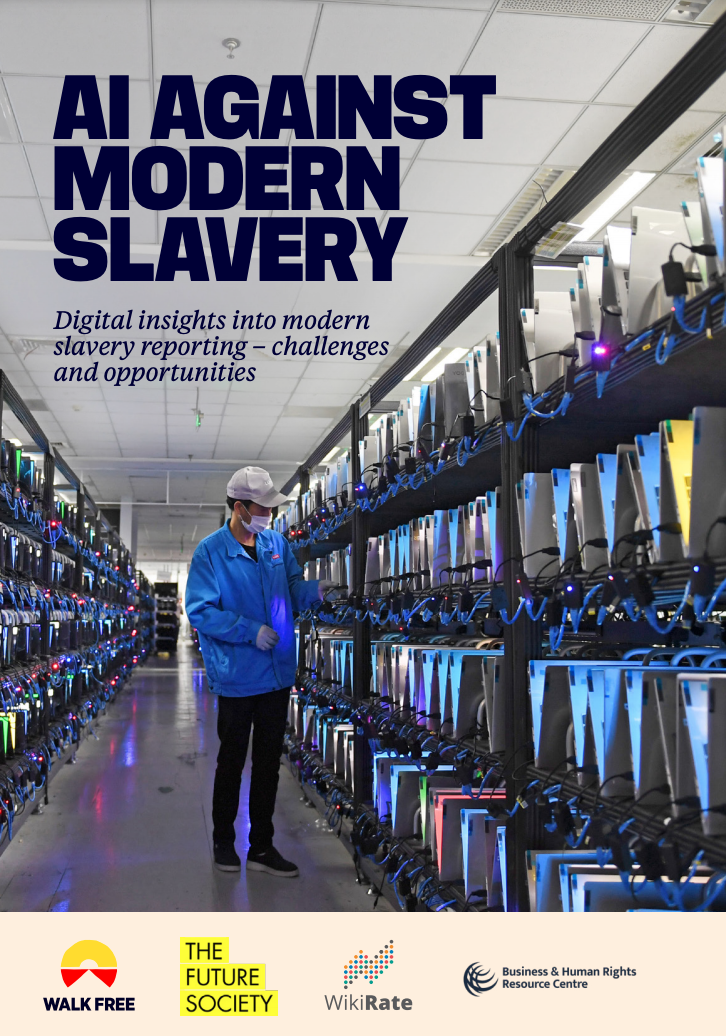From seafood from Thailand and electronics from Malaysia and China, to textiles from India and wood from Brazil, modern slavery exists in all corners of the planet. It is a multibillion-dollar transnational criminal business that affects us all through trade and consumer choices. In 2016, an estimated 25 million people were forced to work through threats, violence, coercion, deception, or debt bondage. Of these, 16 million were forced to work in the private sector. Given the widespread nature of the problem, governments, corporations, and the general public are increasingly expecting companies to accurately disclose the actions they are taking to tackle modern slavery. Yet, five years on, there are challenges with understanding companies’ compliance under the 2015 UK Modern Slavery Act. It is unclear which companies are failing to report under the MSA, while the quality of these statements often remains poor.
Project AIMS (Artificial Intelligence against Modern Slavery) harnesses the power of artificial intelligence (AI) for tackling modern slavery by analyzing modern slavery statements to assess compliance with the UK and Australian Modern Slavery Acts, in order to prompt business action and policy responses. This paper examines the challenges and opportunities for better machine readability of modern slavery statements identified in the initial stages of this project. Machine readability is important to extract data from modern slavery statements to enable analysis using AI techniques. Although extensive technological solutions can be used to extract data from PDFs and HTMLs, establishing transparency and accessibility requirements would reduce the resources required to assess modern slavery reporting and ultimately understand what companies are doing to address modern slavery in their direct operations and supply chains — unlocking this critical ‘AI for Social Good’ use case.

